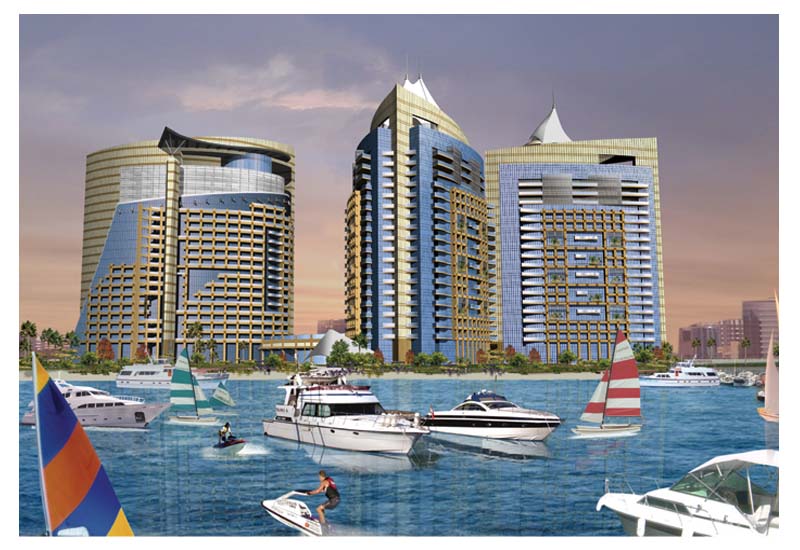The UAE is known across the world as a fast-developing country with a penchant for large buildings, predominantly due to the rise of Dubai in recent years. But thanks to careful planning, excellent natural resources and investors that are prepared to think long-term, Abu Dhabi is on the verge of becoming a destination that attracts guests in its own right, as Lucy Taylor discovers.
The United Arab Emirates is one of the great tourism success stories of the past decade. Dubai has become synonymous with top-end, top-quality travel and predicted visitor figures for the next five years are through the roof. Indeed, most of the western world is now familiar with views of the city's towering skyline.
But what of other places in the UAE - its capital Abu Dhabi, for example?
The emirate of Abu Dhabi seems to have followed a calmer, steadier development plan over the past few years than Dubai. As a result it has been slower to come to international attention - but now, with numerous exciting developments nearing completion, unspoilt naturals settings to enjoy, multiple hotels and various cultural experiences, the emirate is emerging as the country's must-see destination.
The Abu Dhabi Tourism Authority (ADTA) recently revealed details of its five-year strategic plan up to the year 2012, aimed at boosting the number of visitors to the UAE capital to 2.7 million by the year 2012 - a 12.5% increase on previous estimates.

Advertisement
ADTA promotions director Ali Al Hosani explains that the authority was originally established in 2004 with the specific aim of promoting and developing the emirate's international tourism industry.
"Its creation was a clear indication of the Abu Dhabi government's determination to secure the emirate its rightful place on the international tourism map," asserts Al Hosani.
In parallel with its promotional role, ADTA serves as a catalyst in driving and co-ordinating the growth and development of the emirate's tourism infrastructure, facilities and services, including the construction of many additional hotels.
One hotel group that has its heart in Abu Dhabi is Rotana Hotels and Resorts, a company originally established in the emirate in 1992.
Despite impressive international expansion since the group's inception, Rotana executive vice president and chief operating officer Imad Elias insists: "Abu Dhabi is really our home base".
"It was actually quite challenging when we first started Rotana back in 1993 - we had to work hard to gain the trust of our customers in such a competitive region," says Elias. "But we gradually reached the hearts of our customers and attained market recognition And our strength lies in our knowledge of the market.
Rotana currently manages four properties in Abu Dhabi: the Al Maha Arjaan, the Al Rawda Arjaan, the Al Ain Rotana and the group's first property, the 565-room Beach Rotana.
A newcomer to Abu Dhabi is Shangri-La Hotels and Resorts, which officially opened the Shangri-La Qaryat Al Beri in August 2007.
Director of communications Natalie Glorney explains: "We went in to an agreement with Al Jaber to manage this property as we are aware of the vast growth plans in Abu Dhabi and wanted to be part of this growth."
And they aren't the only ones - the majority of major international hotel groups either already operate in the emirate or have a project coming up there, including Starwood Hotels and Resorts, Golden Tulip, InterContinental Hotels Group and The Rezidor Hotel Group.
Sterling support
As the ADTA's extensive plans for boosting Abu Dhabi's travel and tourism prove, the emirate is extremely serious about building its international status as a destination.
"The ADTA is placing great emphasis on leisure-orientated tourism," comments Rotana's Elias.
"With more than 200 natural islands to the west, year-round sunshine and fabulous beaches, we are a strong contender for the 'sun and sand' tourism sector. On top of that, the ADTA has announced that there are plans to further develop some of these islands as leisure resorts - and the government hopes to see much of the investment for these new resorts coming from the local private sector."
Shangri-La also works in close proximity with the ADTA, says Glorney. "We participate in major exhibitions and road shows with ADTA as part of the destination stand and work with them on major familiarisation and press trips.
"We also work closely with Etihad Airlines and develop strategic plans based on destinations that Etihad fly to," she adds.
A new hotel classification system, created by the ADTA in conjunction with various hotel companies, is currently in the process of being implemented across the emirate. The ADTA's Al Hosani confirms that the authority intends to have all hotels and hotel apartments classified by the end of 2009.
"The system has been well received by the international travel trade, who recognise its ability to deliver destination integrity and to provide them with greater confidence in advising and recommending accommodation to their clients," says Al Hosani.
He adds that there have been very few problems so far with the new scheme. "That may be because of all the intense research and drafting work which went into designing the system," he explains. "It took two years in all. Also the transparency of the system - both from the ADTA's side as regulator and the hoteliers' side as operators - leaves little room for problems."









 Search our database of more than 2,700 industry companies
Search our database of more than 2,700 industry companies









